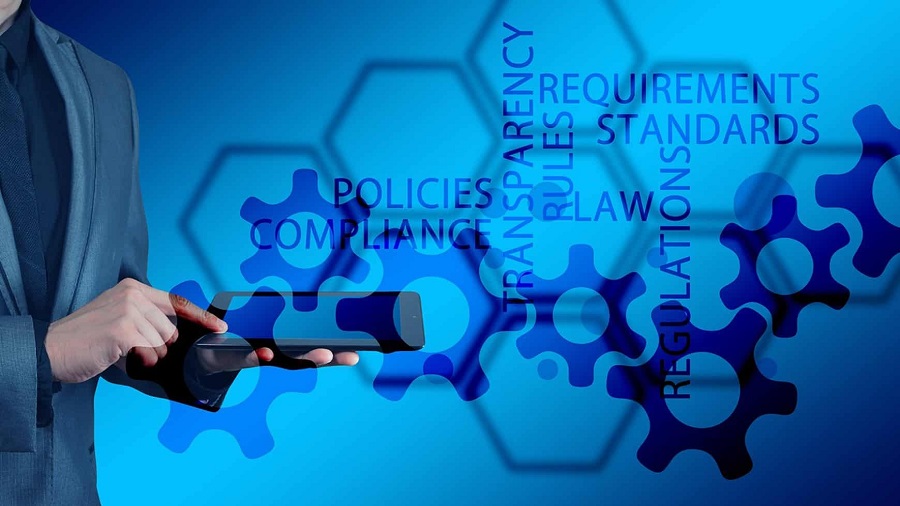Regulatory tax audit preparation for FDI Vietnam
The article below by S4B Vietnam provides detailed, easy-to-understand instructions on the provisions of the Law on Corporate Income Tax for domestic enterprises and foreign-invested enterprises to prepare proactive tax risk management. The content is fully updated with the latest changes to the Law.
1. Corporate income tax
A) Concept
Corporate income tax (CIT) is a direct tax levied on taxable income of enterprises arising from business activities, investment activities, financial activities and other activities as prescribed by law.
B) Importance of tax law compliance
For enterprises:
- Ensure tax compliance risk management, avoid violations of the law and sanctions.
- Highly appreciated for transparency, reputation, building trust with customers, partners, investors and enhancing brand reputation.
- Enjoy tax incentives, support from State policies, creating favorable conditions for business development.
For the economy:
- Ensure revenue for the state budget, contributing to ensuring resources for public spending activities, national security and defense, socio-economic development.
- Create an equal business environment for enterprises, encourage healthy competition.
- Ensure security, social order, build a civilized and modern society.
Tax compliance risk management for Vietnamese enterprises
2. Regulatory tax audit preparation
A) Taxpayers
- Enterprises established under Vietnamese law and operating in Vietnam.
- Branch, representative office of foreign non-profit organizations operating in Vietnam.
- Foreign-invested enterprises established under Vietnamese law operating abroad, for income from business activities, investment activities, financial activities and other activities in Vietnam.
B) Taxable income
Taxable income is the total revenue of the enterprise minus deductible expenses when calculating tax.
- Revenue: Includes all income of the enterprise arising from business activities, investment activities, financial activities and other activities as prescribed by law.
- Deductible expenses when calculating tax: Are reasonable expenses, directly related to business activities, investment activities, financial activities and other activities of the enterprise as prescribed by law.
C) Tax rate
- General tax rate: For taxable income of enterprises is 20%.
- Preferential tax rate:
- Apply a tax rate of 10% to income from business activities of innovative startups in the first 05 years from the date the enterprise is granted a certificate of innovative startups.
- Apply a tax rate of 15% to income from business activities of innovative startups in the next 05 years from the expiration of the 10% tax rate.
- Apply a tax rate of 15% to income from business activities of enterprises implementing development investment projects in economic zones and high-tech zones for 10 years from the date the project is put into operation.
- Apply a tax rate of 15% to income from business activities of enterprises implementing development investment projects in areas with difficult socio-economic conditions for 15 years from the date the project is put into operation.
- Higher tax rate: Apply a tax rate higher than 35% to income from mineral exploitation business activities of enterprises.
Tax fraud detection and prevention 2025
D) Tax calculation method
- Tax deduction method: Corporate income tax payable = Taxable income x Tax rate.
- Profit rate determination method: Corporate income tax payable = Revenue x Profit rate.
E) Tax declaration and payment
- Tax declaration deadline: Enterprises need to declare corporate income tax periodically with the following tax declaration periods:
- Quarterly tax declaration period: Submit within 20 days after the end of each quarter.
- Annual tax declaration period: Submit within 3 months after the end of the fiscal year.
- Tax declaration instructions: Enterprises can declare corporate income tax in two forms:
- Electronic tax declaration: Enterprises access the General Department of Taxation’s Tax Electronic Information Portal to declare taxes online.
- Paper tax declaration: Enterprises use tax declaration forms issued by the Ministry of Finance and submit them to the competent tax authority.
- Tax payment instructions: Enterprises can pay corporate income tax in two forms:
- Paying tax via bank: Enterprises transfer tax money to the tax authority’s bank account according to the tax authority’s instructions.
- Paying tax directly at the tax authority: Enterprises pay cash or checks at the tax counter of the competent tax authority.
F) Responsibility
- Corporate tax audit process: Enterprises must register for tax with the competent tax authority within 15 days from the date of establishment of the enterprise or the date the enterprise changes tax registration information and must update tax registration information when there is a change.
- Tax audit and risk assessment: Enterprises must declare taxes within the time limit prescribed by law and must declare taxes accurately, honestly and completely according to the provisions of law.
- Tax penalty risk mitigation: Enterprises must pay taxes on time according to the provisions of law and pay taxes in full according to the declared amount.
- Financial risk assessment for taxation: Enterprises must prepare accounting books and tax documents in accordance with the provisions of law and preserve accounting books and tax documents for the period prescribed by law.
- Cross-border tax audit challenge: Enterprises must provide complete, accurate and timely information and data related to their business activities to tax authorities upon request and must coordinate with tax authorities in tax audits and inspections.
In addition, enterprises also have other responsibilities such as:
- Implement measures for tax fraud detection and prevention: Enterprises must implement measures to prevent, detect and handle tax fraud in accordance with the provisions of law.
- Participate in propagating and educating tax laws: Enterprises are responsible for participating in propagating and educating tax laws to their officers, employees and related parties.
G) Advice for FDI Enterprises in Vietnam 2025
- Do thorough research on tax compliance risk management: Before deciding to invest in Vietnam, take the time to thoroughly research the tax system and current tax incentives.
- Do thorough tax planning: Develop a detailed tax plan right from the investment stage to ensure compliance and optimize tax obligations throughout the operation.
- Invest in a professional tax team: Build a team of accountants and tax experts who are knowledgeable about Vietnamese tax laws or cooperate with reputable tax consulting firms.
- Always proactively update tax information: Closely monitor changes in internal tax risk evaluation and quickly adjust business operations to adapt.
If you have any questions or need further advice on regulatory tax audit preparation , don’t hesitate to contact us!
S4B Vietnam
- Address: Unit 701B – 701C, Tower A, Handi Resco 521 Kim Ma Street, Ba Dinh District, Hanoi, Vietnam.
- Tel: + 84 24 3974 4181
- Email: service@s4b.com.vn
——————————————–
We Will Show You The Way To Success!


